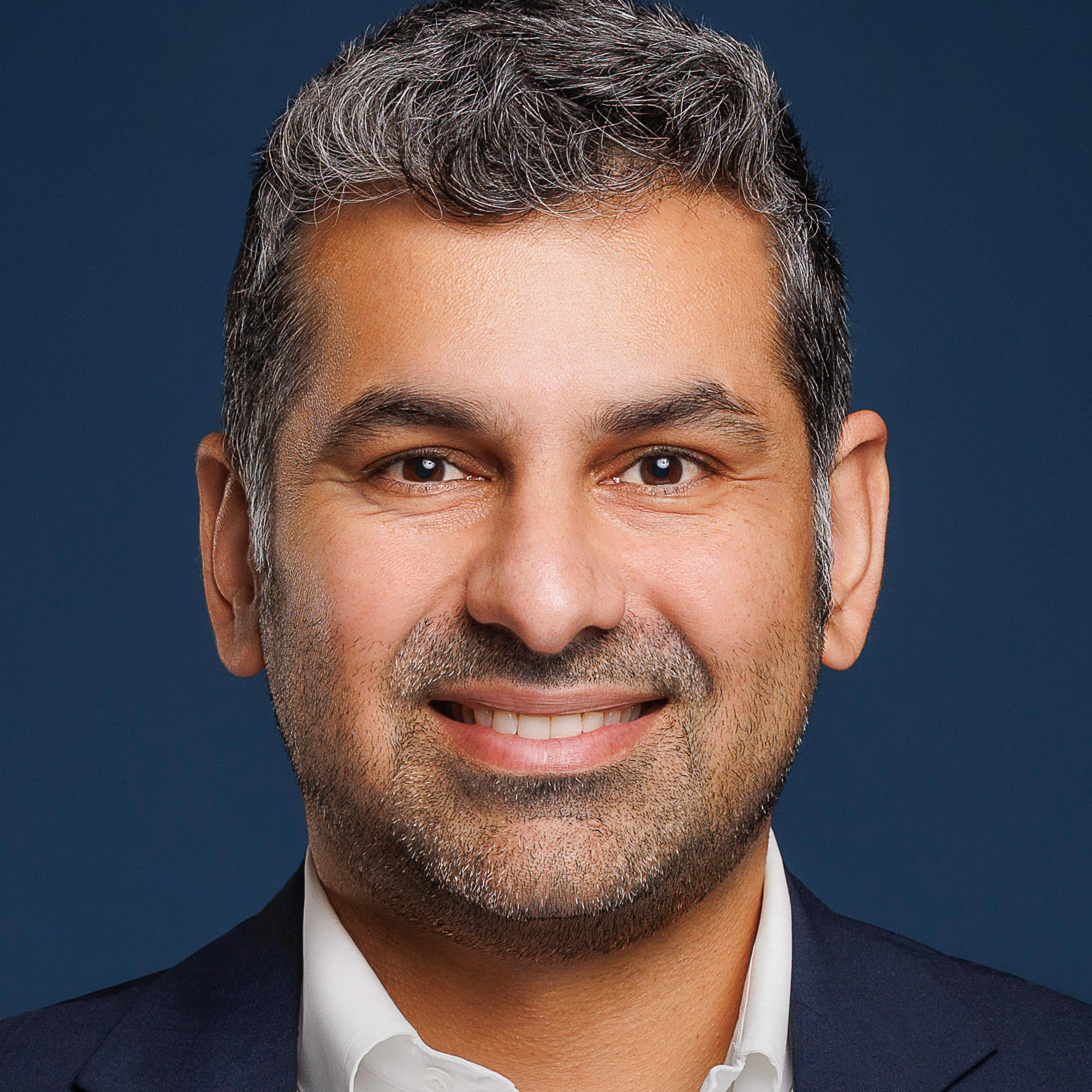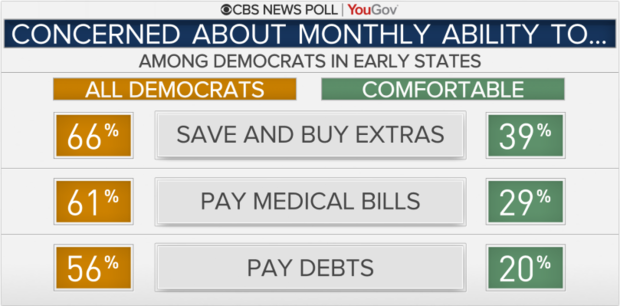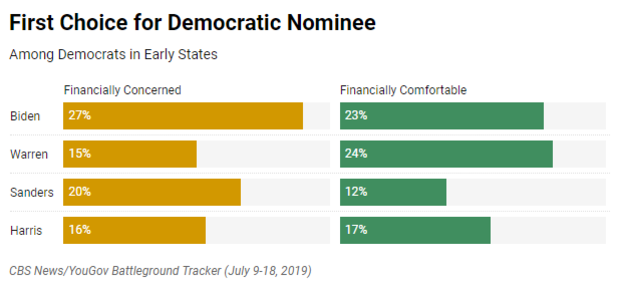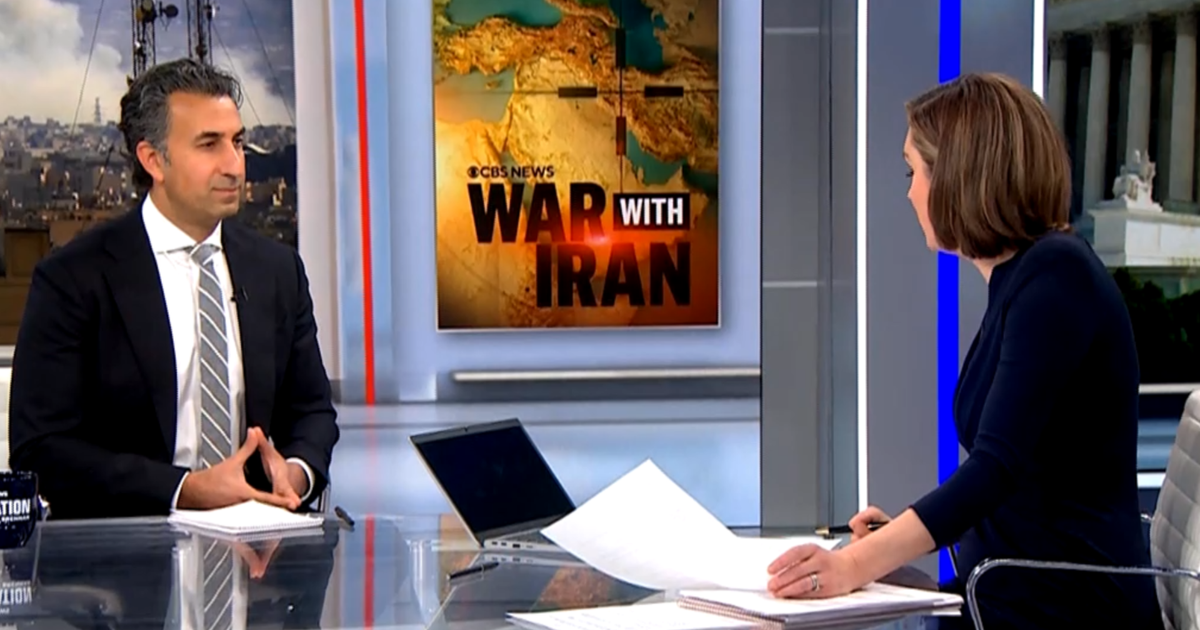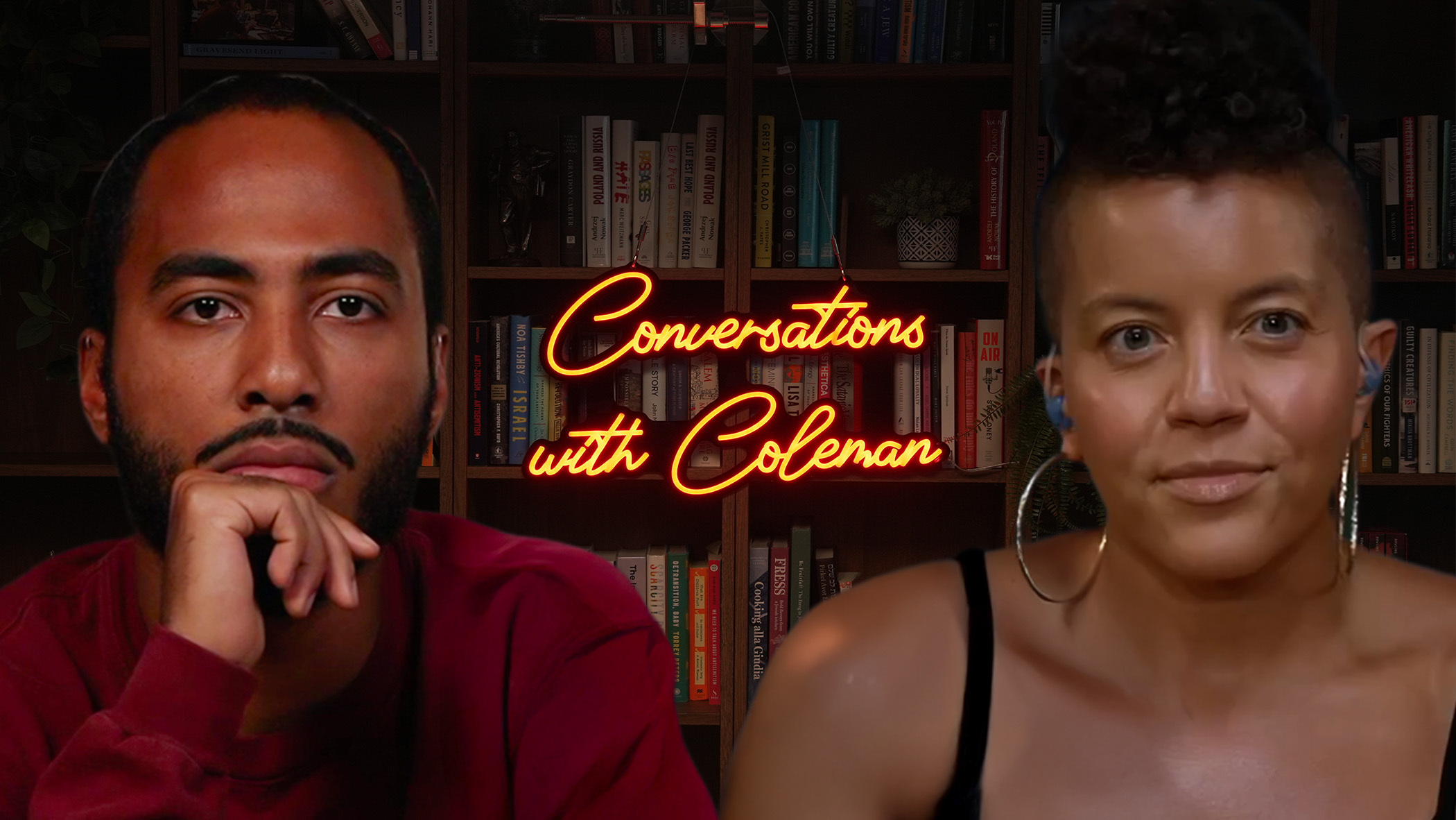Analysis: How financially concerned and comfortable Democrats differ on economy and 2020 candidates
Currently, it's a pretty good national economy, which could make it a little more challenging for Democrats vying to keep President Trump from winning a second term. Job growth is strong, and the economy has been growing for a record 121 consecutive months. But does the Democratic base — a diverse coalition of affluent liberals and more working-class voters — see it the same way?
CBS News measured how Democratic voters feel about the economy and about their party's presidential candidates and found real differences that seem to correspond with voters' level of financial duress. Moreover, when it comes to the economy, there is often a disconnect between national conditions and what people are feeling at the local level.
We divided Democrats and independents who lean Democratic into two groups, based on how concerned they feel about their month-to-month financial obligations.
The three biggest areas of concern among lower-income Democrats are saving and buying extras, paying medical bills, and paying debts. Among Democrats in states with early primaries or caucuses, 44% are concerned about all three of these issues. For the purposes of this analysis, we will call this group "concerned."
The other 56% of Democrats, who are more financially secure we'll call "comfortable." This group may be confident about some of these financial issues and uneasy about others.
This simplified grouping allows us to broadly map the economic contours in the party. The data come from the CBS News/YouGov Battleground Tracker poll of the 18 earliest states in the Democratic presidential nominating process.
The concerned are not feeling the benefits of the national economy to the same extent as the comfortable. They feel differently about their local economy, as well as how they have fared in the last few years.
Just 59% of the concerned rate their state's economy positively, compared to 76% of the comfortable. When rating the economy, the concerned are more likely to think about their own pocketbooks: 42% say their own personal finances come to mind first, versus 30% of the comfortable, who are relatively more likely to think about the unemployment rate and stock market.
When asked about the availability of good jobs where they live, compared to three years ago, 37% of the concerned say there are fewer now, compared to only 21% of the comfortable. Across groups, about half say it's "about the same" as three years ago. When asked whether they personally are better or worse off than three years ago, 42% of the concerned say worse, while most of the comfortable report being about the same.
When it comes to the 2020 presidential candidates, the concerned are more likely than the comfortable to name Joe Biden or Bernie Sanders as their top choice. Among the concerned, 27% name Biden and 20% pick Sanders (compared to 23% and 12%, respectively, among the comfortable).
However, Biden's support has dropped about seven points since last month among the concerned, with three in 10 of his supporters from June now naming a different candidate as their top pick. Kamala Harris is the main beneficiary of these voters who have changed their minds, though she polls similarly among the concerned and comfortable. The top choices among the latter are Elizabeth Warren (24%) and Biden (23%).
These groups also differ on the issues they are prioritizing in the upcoming election, as well as on certain policies. While both groups rate health care as a very important issue, the concerned are more likely than the comfortable to say that jobs and wages, as well as income inequality, are very important. The concerned are also less likely than the comfortable to identify as liberals (58% vs. 65%).
There are areas of policy agreement, such as supporting "Medicare-for-All," but areas of difference concern public college tuition: six in 10 of the comfortable are in favor of making public colleges cheaper for students but not free, while only a third say it should be completely free. The concerned, on the other hand, are evenly split between these options.
There are some clear differences between these two groups in terms of demographics. The comfortable are more likely to be white (64%) than the concerned group, which is racially diverse (51% white, 23% black, and 19% Hispanic).
The comfortable are also somewhat older, and more likely to be college graduates (48%) than the concerned (32%).
And unsurprisingly, there are differences by income. The concerned mostly report annual family incomes that are under $50,000 — well below the U.S. household median — while the comfortable tend to make more, with 30% reporting family incomes of $100,000 or more. Six in ten of the comfortable tell us they have invested in the stock market, while fewer than four in 10 are among the concerned.
This CBS News survey was conducted by YouGov between July 9 and July 18, 2019. A representative sample of 18,550 registered voters was selected in 18 states expected to hold early primaries and caucuses (Alabama, Arkansas, California, Colorado, Iowa, Maine, Massachusetts, Minnesota, Nevada, New Hampshire, North Carolina, Oklahoma, South Carolina, Tennessee, Texas, Utah, Vermont, Virginia). This sample includes 8,760 self-identified Democrats and Democratic-leaning Independents. This sample was weighted according to gender, age, race, and education based on the American Community Survey, conducted by the U.S. Bureau of the Census, as well as 2016 presidential vote. The margin of error is approximately 1.5 percentage points (but larger for subgroups of Democrats).
